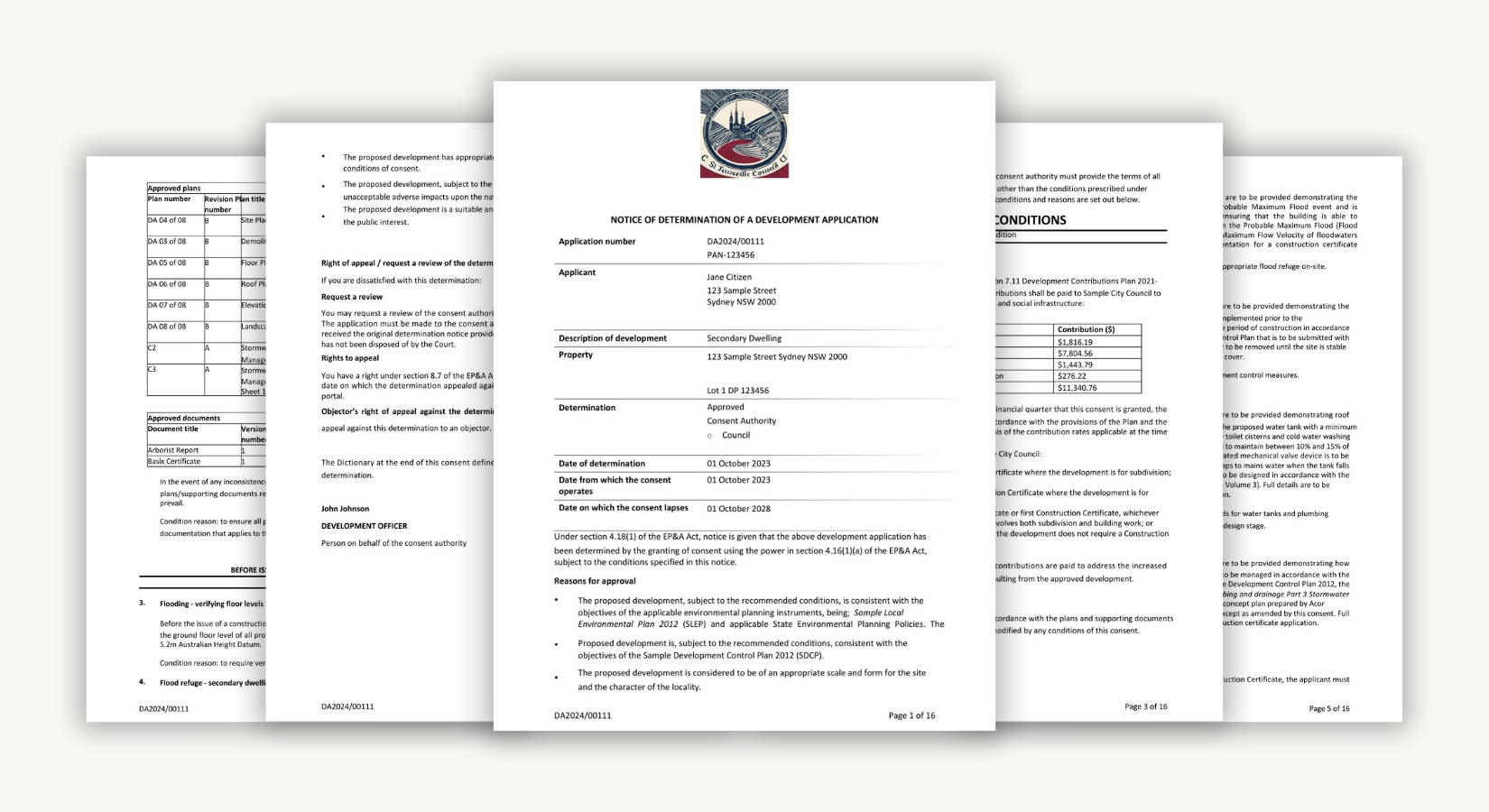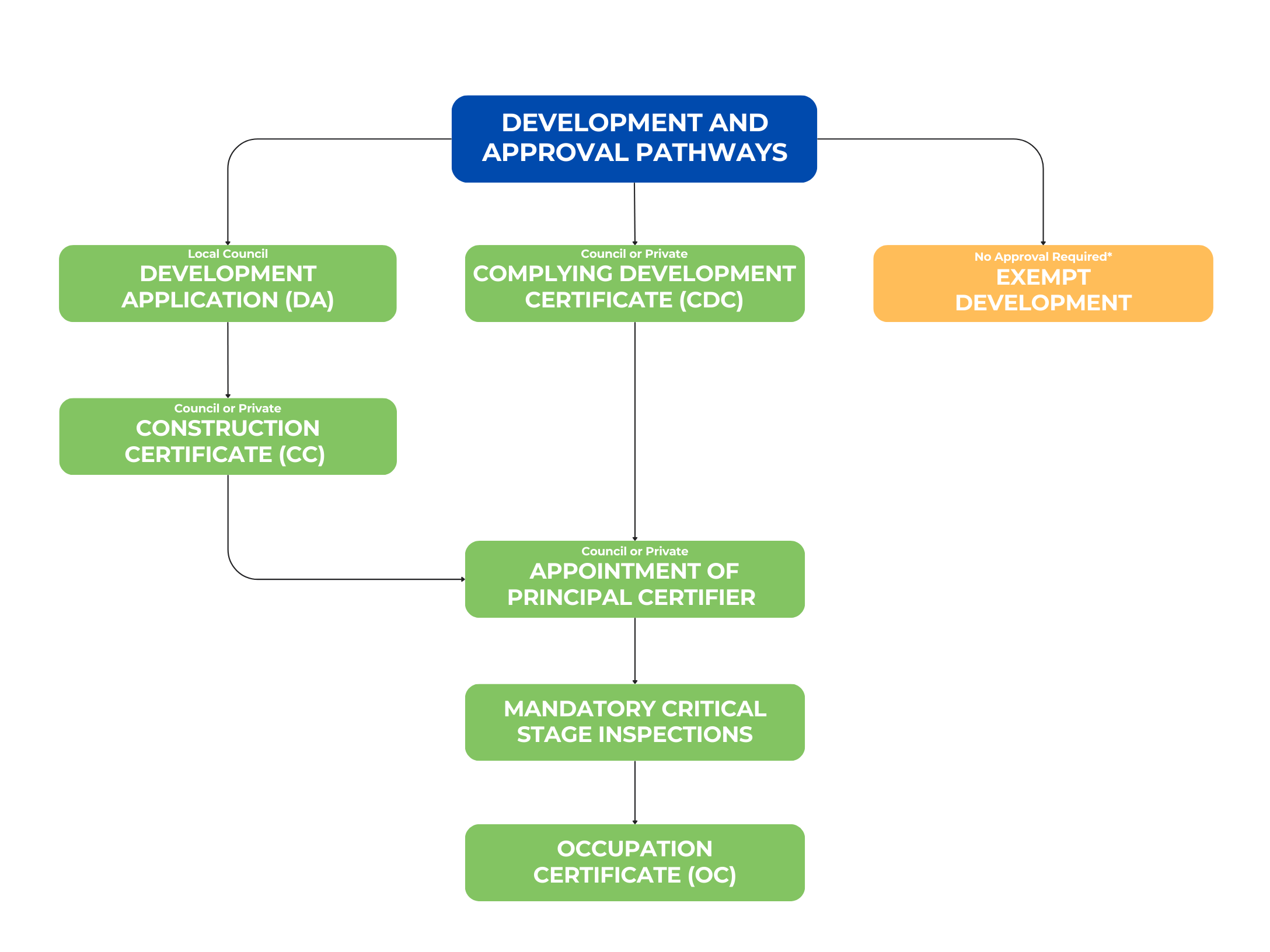Can a Private Certifier approve or issue a DA (Development Application)?
Navigating the world of building and development can be complex, especially when it comes to understanding the roles and responsibilities of different professionals involved in the process. One common question that arises is whether a private certifier can approve or issue a Development Application (DA). In this article, we will explore this question in detail to clarify the role of private certifiers in the DA process.

What is a Development Application (DA)?
A Development Application (DA) is a formal request for permission to carry out development. This can include a wide range of activities, from constructing a new building to making alterations or additions to an existing structure. The DA process ensures that proposed developments comply with local planning controls and regulations, and it often involves a thorough assessment of the potential impacts of the development on the surrounding area.
Source: Department of Planning, Housing and Infrastructure
The Role of Private Certifiers
Private Certification was introduced into NSW in 1998, as a vehicle to streamline the assessment and development process. There was a need to reduce approval response times and improve the service provided to clients. Prior to this introduction, nearly all development and building approvals were the responsibility of Local Government (Councils).
Also known as Building Surveyors, Certifiers are professionals who have been accredited by Fair Trading to provide building certification services in NSW. They have the necessary qualifications, experience and insurance to carry out building certification work. Their primary responsibility is to ensure that building work complies with the relevant codes, standards, and regulations.
A Private Certifier can issue a Complying Development Certificate (CDC), which is a fast-track approval if your development meets the set criteria outlined in various State Environmental Planning Policies (SEPPs).
They conduct inspections and can issue a range of certificates, however, their role in the DA process is limited.
Approval and Issuance of a DA
Private Certifiers do not have the authority to approve or issue a Development Application. The approval of a DA is solely within the jurisdiction of the local council or other relevant planning authority. This is because the DA process involves a comprehensive assessment of a range of planning and environmental factors, which falls outside the scope of a Private Certifier’s expertise and responsibilities.

What Can Private Certifiers Do?
While Private Certifiers cannot approve or issue a DA, they can play a significant role in the development process. Here are some of the key tasks that private certifiers can undertake:
-
Complying Development Certificates (CDCs): In some cases, certain types of development may be classified as complying development, which is a fast-tracked approval process for straightforward and low-impact projects. Private Certifiers can issue Complying Development Certificates (CDCs) if the proposed development meets the specific criteria set out in the relevant planning controls.
-
Construction Certificates (CCs): After a DA has been approved by the local council, a Construction Certificate is required before building work can commence. Private Certifiers can issue Construction Certificates, ensuring that the proposed building work complies with the approved DA and relevant building regulations.
-
Occupation Certificates (OCs): Upon completion of the building work, an Occupation Certificate is required to confirm that the building is suitable for occupation. Private Certifiers can issue Occupation Certificates, verifying that the building work has been completed in accordance with the approved plans and meets the necessary safety and compliance standards.
-
Inspections and Compliance Checks: Private Certifiers conduct various inspections throughout the construction process to ensure compliance with building codes and standards. These are known as Mandatory Critical Stage inspections, and can vary depending on the project.
In summary, Private Certifiers play a vital role in ensuring that building work complies with relevant regulations and standards. However, they do not have the authority to approve or issue a Development Application. The approval of a DA is the responsibility of the local council or other relevant planning authority. Once a DA has been approved, Private Certifiers can assist with various aspects of the development process, including issuing Construction Certificates and Occupation Certificates.
Understanding the distinct roles of Private Certifiers and local Councils in the development process is crucial for builders, developers, and property owners. By working collaboratively with both parties, you can navigate the complexities of the development process more effectively and ensure that your project complies with all necessary regulations and standards.
 By
By

.png)